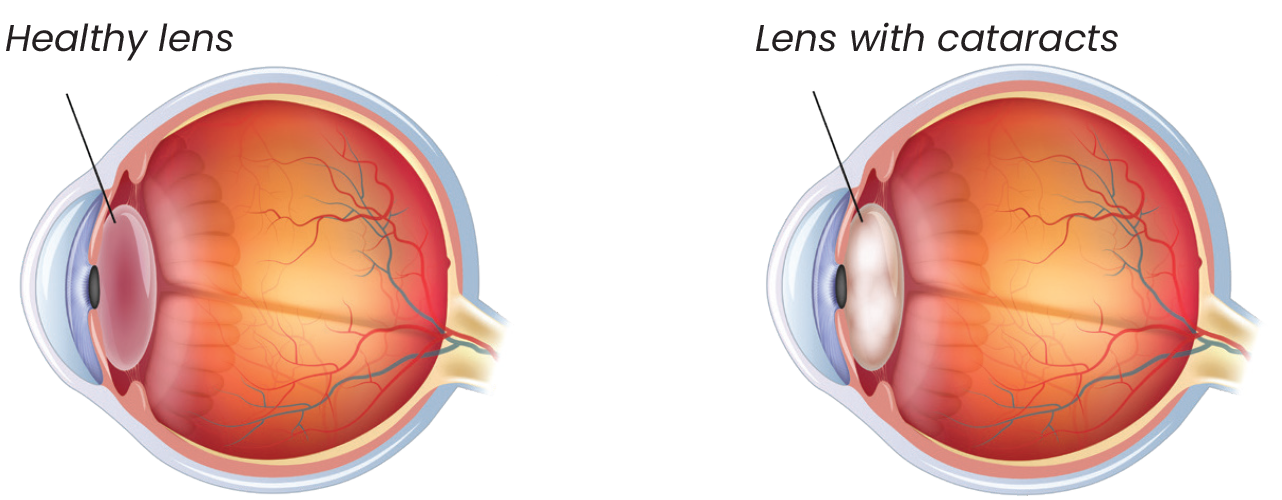What is a cataract
A cataract is a condition where the lens of your eye becomes cloudy. It happens because of protein in the lens changes and sticks together, reducing the amount of light that can pass through your eye’s lens. This occurs over a period of years.
This is a common condition that affects about one in every two people over 50 years old, and most people will develop cataract disease symptoms by their 80s.

What are the symptoms of a cataract?
- Blurred, faded or changed colour vision
- Increased light sensitivity
- Distortion or double vision in one eye
The clouding over your eye’s lens affects your vision. You might see a haze over your vision, less colour or more glare. Cataract disease might develop in one eye or progressively over both eyes.
Many people first notice the symptoms of cataracts at night, or when driving.

How do we treat a cataract disease?
In early stages, a cataract may not need any tratment. There are no medications, dietary supplements, exercises or optical devices that have been proven to prevent or “cure” cataracts.
Sun protection for your eyes, such as glasses that block UV light, may slow cataract development but it will not cure it.
But once your vision has reduced to the stage where it is impacting your lifestyle, work ability or safety to drive, surgery is required.
What is cataract surgery?
Cataract surgery is common, safe and highly effective. It is the only way to remove a cataract. Generally, the surgery is performed in hospital and you are given a local anaesthetic to numb your eye.
We remove the old, clouded lens and replace it with a clear, artificial lens called an intraocular implant. This lens is tailored to your eye’s shape make sure it will have the correct focus.
What are intraocular implants?
There are many types of intraocular implants (IOLs) that are available to replace your natural lens. Most are made from silicon, acrylic or other plastics. The choice of lens depends on your individual vision needs, your lifestyle, your eye health and your degree of your cataract.
- Monofocal IOLs
Monofocal IOLs have one focal distance to provide clear vision at distance, intermediate or near ranges, but not all three at once. Some people have distance monofocal IOLs and wear reading glasses. Toric IOLs to correct astigmatism are also classified as monofocal IOLs.
- Trifocal and Extended Depth of Field IOLs
These IOLs are more advanced and provide multiple focal distances to enable clear vision. They are customised individually. They can also be used to correct astigmatism. These implants mean you won’t need to wear glasses, or change your head or eye position for effective vision.
Our clinic also offers advanced procedures like Corneal Transplant in Brisbane for patients who may require additional treatment options beyond cataract surgery, ensuring comprehensive eye care tailored to individual needs.
Do you have question or concern about your eye health? To discuss your condition with an experienced cataract surgeon in Brisbane or optometrist, please contact The Eye Health Centre.



